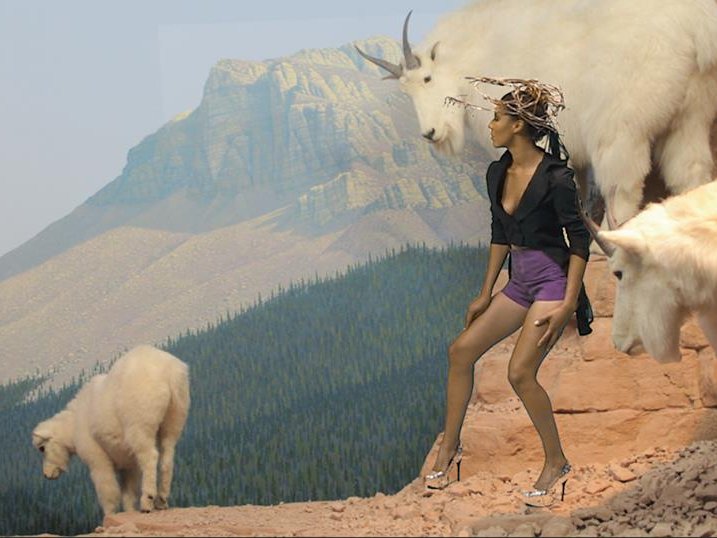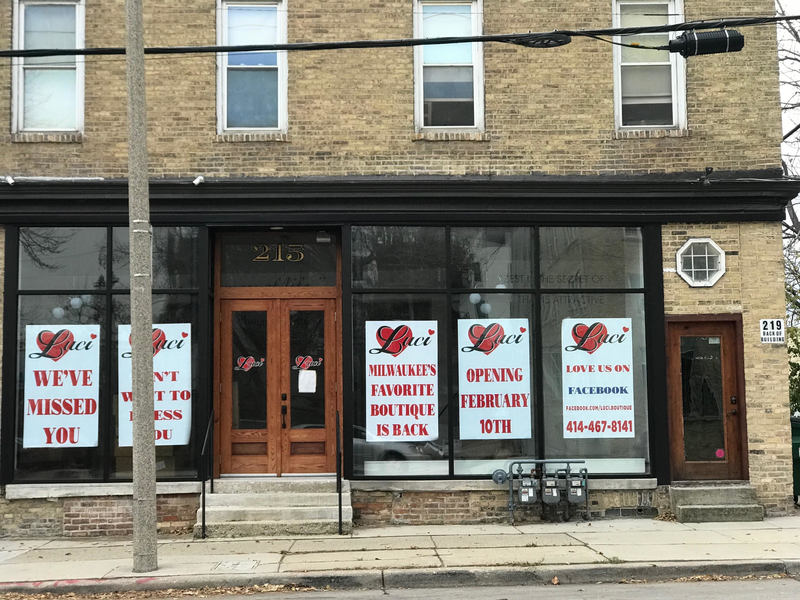Timothy Westbrook describes himself as a "sustainability driven fiber artist" who, after appearing on three episodes of "Project Runway" this summer, is back in Milwaukee and about to present a performance / fashion show called "Paleontology of a Woman."
The event takes place on Saturday, Sept. 21 at the Milwaukee Public Museum. The show starts at 7 p.m. – doors open at 6:30 p.m. – and runs until 10 p.m.
The Hilton Milwaukee City Center will host a reception after the event. Tickets to the event cost $50 and include both the fashion show and admission to the reception.
"Paleontology of a Woman" is the unofficial kick-off to Fashion Week in Milwaukee, which runs from Sept. 22 to 28.
The fashion show will showcase 15 models wearing 15 different dinosaur-inspired dresses and masks. Milwaukee designer Laura Meyer created three of the garments and Westbrook created 12.
The garments will be transported by bicycle from Westbrook’s studio at The Shops of Grand Avenue to the museum.
The dresses and accessories in the show were made from many found items including plastic bag strips, soda cans, wire hangers and discarded fabric (some from the set of "Project Runway"), along with vintage wedding gowns and curtains.
The woven strips of white plastic bags were perfect for creating a material with a bridal-gown feel. Westbrook points out that once you put a model in a dinosaur-inspired dress you have an "instant bridezilla."
"Again, there’s a lot of playfulness in my approach," he says. "This show has a whimsical tongue-and-cheek approach to fossil fuel reduction."
He also jokes fossils are the new black, combining an overused fashion adage with the fact that fossil fuels are indeed black in color. He also came up with the tagline for his show "dinosaurs are cool because they’re not fossil fuel."
Adding whimsy and a playfulness to a subject he’s very serious about is important to Westbrook.
"Sustainability is such a heavy, heavy topic and at its core, it’s a pessimistic thing, but what’s great about being an environmentalist and a sustainability enthusiast is that we can have an optimistic outlook on a negative situation."
All of the models will wear Westbrook’s signature paper punched aluminum can shoes and walk around at the same time (instead of one at a time like on a typical fashion show runway). The intention is to create what Westbrook describes as a "wandering herd of beauty."
Westbrook says the show is a reaction to the fact the planet is in rough shape environmentally, and to the systems currently in place that are not working, but that there are still things everyone can do to improve our situation from picking up garbage to questioning our choices.
"We are the solution," says Westbrook.
Westbrook has a talent for finding and rallying Milwaukee talent. Aside from the aforementioned Meyer, in this show he works with Gina Weber as a movement coach, composer Allen Russell, wardrobe stylist Alexis Rose, painter Gary Leonard, filmmaker WC Tank and designers Kylen Eberlein, Amanda Mills, Izzy Solvang, Becky Tesh and Jenna Wilson.
"The show was born out of the idea that plastic bags are fossil fuels, so they are as old as dinosaurs," says Westbrook.
"Paleontology of a Woman" is also deeply inspired by the year 1887, when scientists "discovered" the Triceratops, which is theorized to be the last dinosaur standing.
Also in 1887, Helen Keller began her education and the very first calculator received a patent.
"I was always inspired by the Victorian period. And this year in particular was a remarkable one for science, history, education and imagination," says Westbrook. "125 years later I began planning this event for you to experience and now it is time to excavate those plans and bring fashionable creativity to life."
The show was a long time coming. It began in Westbrook’s junior year at Syracuse University when he wanted to make a dinosaur mask and a dress that went with it. Westbrook was particularly inspired by Keller because of the amount of knowledge and patience it took to teach her and for her to learn.
"It is so beautiful to me," he says.
Westbrook is often called idealistic for his visions of world sustainability. He admits that he is and does not intend to change.
"My 10-year plan is to walk into a movie theater where the foot traffic is actually powering the movie theater and, if there’s enough foot traffic, it could also power some low-income housing nearby and the entire film was shot with bio-plastic cameras and solar power and all the actors and producers are biking to the set," he says. "It’s really fun to think about where this could grow."
The problem, he believes, is that as soon as people have luxury, it’s not sustainable. One of his goals is to figure out how to have luxurious moments that have sustainable actions within them.
Westbrook says he struggles with his own unsustainable choices every day. He doesn’t own a car and has a manual sewing machine and looms, yet he uses electricity when plugging in his iron and he has a computer.
Consequently, his internal struggles have made him commit to the cause on an even deeper level lately, including picking up trash everywhere he goes. He says he was inspired while working at the Pfister Hotel as the artist-in-residence last year when he noticed how the employees would stop to pick up a small piece of straw wrapper.
"It’s ‘pride of place’ and it’s awesome," he says. "Why can’t we have that everywhere?"
Westbrook says he first realized he was an environmentalist when he was a freshman at college and someone told him they would never shop in a thrift store. It made him realize how far most people were from the recycle / reuse mentality and how important it was to him.
Westbrook recently discovered that his work advertises a feminine product to a masculine audience. He never intended to do this, and yet, he is surprised by the number of men who are drawn to his work.
Men seem particularly drawn to his weavings made from cassette tapes which have a bead-and-sequin look to them.
"Men walk up to them and ask questions like ‘what looks better country or rock ‘n’ roll?’ or ‘which one is the Talking Heads?’ ‘Where’s the heavy metal one?’" he says.
Many men also like his high heels covered in aluminum beer can paper punch circles.
"I have men walking up to stilettos and wanting to interact with them," he says.
"Paleontology of a Woman" has had an unexpected response as well. "People have told me that their son is going to love this fashion show because of the dinosaurs," he says.
Westbrook says he learned a lot from "Paleontology," including that he doesn’t "use enough actual trash" in his art.
Westbrook has already started picking up and reusing cans from the bike path. Also, although friends have donated their plastic bags to him, he wants to start using more that he finds directly on the road.
"If I’m going to do this, I really need to go all way," he says.
Also, his grandfather was blind and often listened to books on tape, which is one reason why he often weaves with cassette tape.
Molly Snyder started writing and publishing her work at the age 10, when her community newspaper printed her poem, "The Unicorn.” Since then, she's expanded beyond the subject of mythical creatures and written in many different mediums but, nearest and dearest to her heart, thousands of articles for OnMilwaukee.
Molly is a regular contributor to FOX6 News and numerous radio stations as well as the co-host of "Dandelions: A Podcast For Women.” She's received five Milwaukee Press Club Awards, served as the Pfister Narrator and is the Wisconsin State Fair’s Celebrity Cream Puff Eating Champion of 2019.







